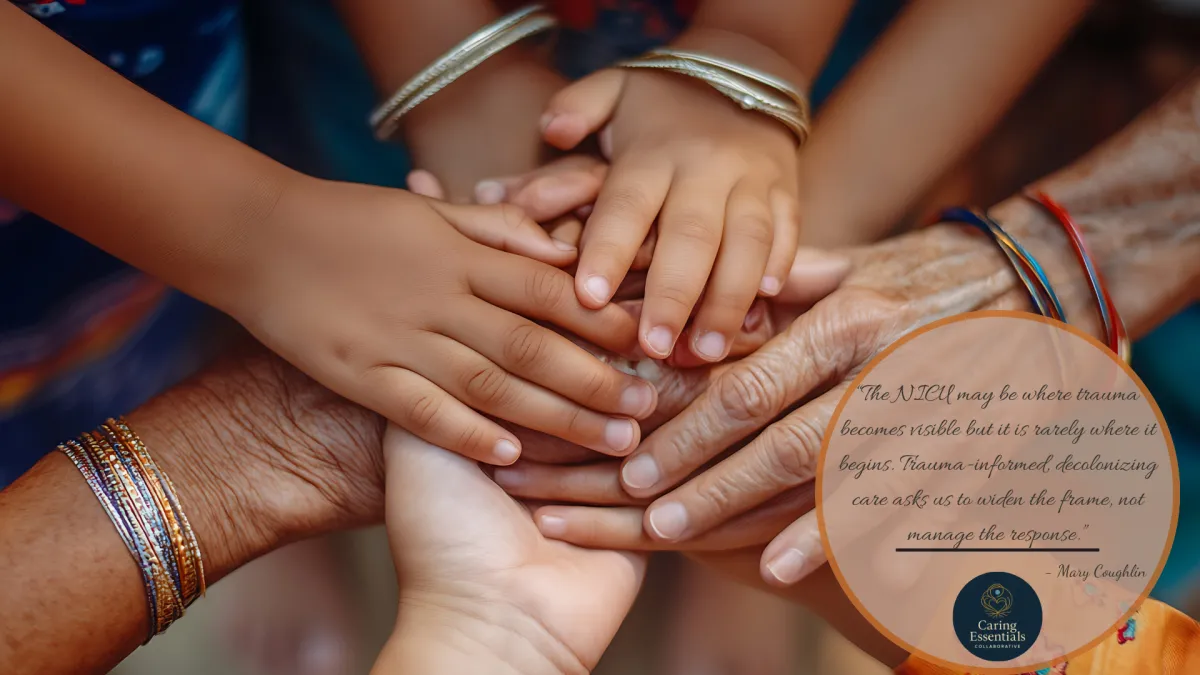A Prescription for Peace: A Trauma-Informed Framework for Ending Global Conflict
Published on: 28/02/2026
What if the world needed trauma-informed care? A reflective framework for peace rooted in justice, dignity, and regulated leadership.
activismB.U.F.F.E.R.truthjusticehealinghope
Belonging, Understanding, and the Courage to See Clearly
Published on: 09/02/2026
A justice-centered reflection on belonging, loneliness, fear, and how trauma-informed care, curiosity, and dignity help us reconnect and heal.
activismB.U.F.F.E.R.couragebelongingjusticehealingpresenceconnection
Decolonizing Therapy: Early Reflections on Healing, History, and Care
Published on: 27/12/2025
A reflection on Decolonizing Therapy by Dr. Jennifer Mullan, exploring its relevance to NICU care, Trauma-Informed Developmental Care, B.U.F.F.E.R., and Caring Science.
B.U.F.F.E.R.reflectionbelongingtruthjusticehealing
THE REAL GIFTS SERIES — WEEK 3
Published on: 10/12/2025
New Blog Post Description
authenticityB.U.F.F.E.R.presence






